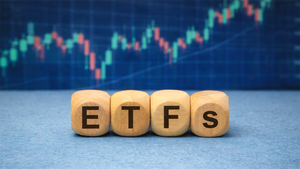Young workers are relying on more than their 401(k)s to save for retirement as other types of investments play a greater role in their long-term wealth plans, according to the annual nationwide survey of 401(k) plan participants from Schwab Retirement Plan Services. While the 401(k) remains the top retirement savings vehicle for today’s workers overall, Gen Z and Millennial workers are more likely to also invest in cryptocurrency, real estate, annuities, and small businesses, unlike older generations.
“Younger workers today are beginning their financial journey from a different place than older generations did when they began,” said Catherine Golladay, Head of Schwab Workplace Financial Services. “They are questioning traditional approaches to both work and retirement as they have changed jobs and reconsidered priorities during the pandemic. The 401(k), while still their primary retirement savings tool, is no longer viewed as their only path to retirement. They see an opportunity to reach their financial goals through diverse assets that are making them excited about investing and engaged in their financial futures.”
Only 37% of Gen Z workers say their first investing experience was through a 401(k), a lower proportion than Millennials (54%), Gen X (61%) and Boomers (61%). Instead, many Gen Z workers first got involved in investing through mobile trading (22%), cryptocurrency (11%), traditional brokerage accounts (10%) and health savings accounts (9%).
Younger workers want more choices
In the past year, many Gen Z (38%) and Millennial (27%) workers changed employers and they have had the opportunity to take a fresh look at how they are saving and investing. Young workers say they want a wider range of investment options and vehicles. More than 4 in 10 Gen Z and Millennial workers wish they could invest in annuities and cryptocurrency in their 401(k). More than a third wish they could select ESG investments, and nearly as many say they’re interested in fractional shares. More than 7 in 10 younger workers say it’s important that their 401(k) investments reflect their personal values.
About half of all employees (48%) who are offered a health savings account (HSA) by their employer are using it, primarily to pay current healthcare expenses. About half of Gen Z (52%) and Millennial (48%) workers are also using their HSAs to save for future healthcare costs in retirement, and more than half are investing their HSAs in mutual funds and other types of investments.
“All workers want to feel heard, and it makes a powerful statement when an employer can demonstrate that their benefits reflect what employees want,” said Golladay. “The odds are that younger hires are already exploring their next job or will be soon. Employers seeking to retain talent must consider the saving and investing preferences of young workers as they evaluate their benefit programs.”
Retirement expectations
Rising costs and market volatility continue to cause concern for all workers, but Gen Z and Millennial workers are more likely than older workers to cite unexpected expenses, education costs, and supporting family members as obstacles to saving for retirement.
Still, younger workers are staying optimistic and intend to retire early into an active lifestyle that includes enjoying life, travel, and spending time with family. Gen Z wants to retire at 60 and Millennials at 62, compared to 64 and 67 for Gen X and Boomers. More than 90% of younger workers say they are very or somewhat likely to achieve their retirement savings goals.
Gen Z thinks they need to save $1.4 million for retirement while Millennials estimate $1.8 million, and all generations think their savings will last about the same amount of time. Gen Z and Boomers estimate having enough for 25 years, while Millennials and Gen X say 22 years. However, more than a quarter of Gen Z workers don’t know how much they will need in monthly income to live comfortably in retirement.
From Internet to IRL: Young Workers Cast Wide Net for Advice
Younger generations are more open to financial wellness tools, including online tools to help save for retirement, build an emergency savings fund, and manage debt. They are also open to help from a financial professional to develop a plan and stay on track. In fact, Gen Z (83%) and Millennials (82%) see more need for personalized advice for their 401(k) than Gen X (79%) and Boomers (67%). Younger workers prefer human over computer-generated advice but are very likely to utilize both, while Boomers are less likely to follow both human and computer-generated advice.
Gen Z (24%) and Millennials (20%) are more likely to use social media for financial advice than Gen X (14%) and Boomers (2%). More than a third seek advice from family and friends (40% and 35% for Gen Z and Millennials versus 24% and 16% for Gen X and Boomers). Nearly half of Gen Z and Millennials want help calculating how much money they need to save for retirement. Other areas of interest include receiving 401(k) investment advice, determining retirement age, and managing expenses.
“Even with an uncertain economic outlook, young workers have a lot of reasons to be optimistic and that’s reflected in their attitudes towards saving and investing,” said Brian Bender, Head of Schwab Retirement Plan Services. “Of course, time is on their side, but Gen Z and Millennial employees also have access to a combination of investment choices, virtual education, tools, and human advice that previous generations did not have at their age. The best news is that younger workers are open to leveraging all these resources to help them achieve financial security.”
About the survey
This online survey of U.S. 401(k) participants was conducted by Logica Research for Schwab Retirement Plan Services, Inc. Logica Research is neither affiliated with, nor employed by, Schwab Retirement Plan Services, Inc. A total of 1,000 plan participants completed the survey. Survey respondents were actively employed by companies with at least 25 employees, were 401(k) plan participants and were 21-70 years old. Survey respondents were not asked to indicate whether they had 401(k) accounts with Schwab Retirement Plan Services, Inc. All data is self-reported by study participants and is not verified or validated. Respondents participated in the study between April 4 and April 19, 2022. Detailed results can be found here. In order to analyze Gen Z results against other generations, an additional 100 plan participants aged 21 to 25 completed the survey.
About Charles Schwab
At Charles Schwab, we believe in the power of investing to help individuals create a better tomorrow. We have a history of challenging the status quo in our industry, innovating in ways that benefit investors and the advisors and employers who serve them, and championing our clients’ goals with passion and integrity.
More information is available at aboutschwab.com. Follow us on Twitter, Facebook, YouTube, and LinkedIn.
Disclosures
Schwab Retirement Plan Services, Inc. and Charles Schwab & Co., Inc. are separate but affiliated companies and subsidiaries of The Charles Schwab Corporation. Schwab Retirement Plan Services, Inc. provides recordkeeping and related services with respect to retirement plans. Brokerage products and services are offered by Charles Schwab & Co., Inc.
Workplace Financial Services is a business enterprise which offers products and services through Schwab Retirement Plan Services, Inc.; Schwab Stock Plan Services; and Compliance Solutions. Schwab Retirement Plan Services, Inc., provides recordkeeping and related services with respect to retirement plans. Schwab Stock Plan Services is a division of Charles Schwab & Co., Inc. providing equity compensation plan services and brokerage solutions for corporate clients. Compliance Solutions is comprised of Schwab Designated Brokerage Services (DBS), a division of Charles Schwab & Co., Inc. DBS provides brokerage solutions for corporate clients who monitor their employees' securities activity. Schwab Retirement Plan Services, Inc., and Charles Schwab & Co., Inc. are separate but affiliated entities, and each is a subsidiary of The Charles Schwab Corporation.
Through its operating subsidiaries, The Charles Schwab Corporation (NYSE: SCHW) provides a full range of securities brokerage, banking, money management and financial advisory services to individual investors and independent investment advisors. Its broker-dealer subsidiary, Charles Schwab & Co., Inc. (member SIPC, www.sipc.org), and affiliates offer a complete range of investment services and products including an extensive selection of mutual funds; financial planning and investment advice; retirement plan and equity compensation plan services; compliance and trade monitoring solutions; referrals to independent fee-based investment advisors; and custodial, operational and trading support for independent, fee-based investment advisors through Schwab Advisor Services. Its banking subsidiary, Charles Schwab Bank, SSB (member FDIC and an Equal Housing Lender), provides banking and lending services and products. More information is available at www.schwab.com and www.aboutschwab.com.
1022-241L
© 2022 Schwab Retirement Plan Services, Inc.
View source version on businesswire.com: https://www.businesswire.com/news/home/20221025005153/en/
Contacts
Mike Peterson
Charles Schwab
330-908-4334
mike.peterson@schwab.com
Carly Taylor
The Neibart Group
973-618-6993
SchwabRPS@neibartgroup.com





